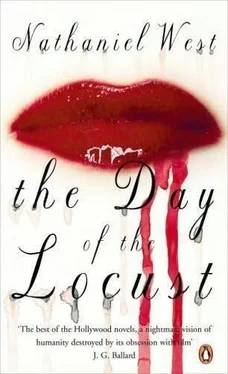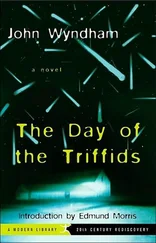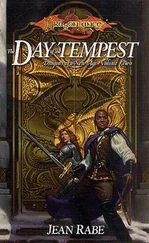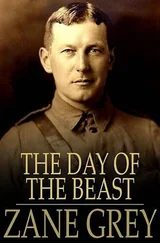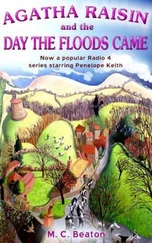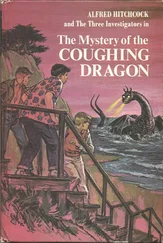Tod began to wonder if it might not be true that actors suffer less than other people. He thought about this for a while, then decided that he was wrong. Feeling is of the heart and nerves and the crudeness of its expression has nothing to do with its intensity. Harry suffered as keenly as anyone, despite the theatricality of his groans and grimaces. He seemed to enjoy suffering. But not all kinds, certainly not sickness. Like many people, he only enjoyed the sort that was self-inflicted. His favorite method was to bare his soul to strangers in barrooms. He would make believe he was drunk, and stumble over to where some strangers were sitting. He usually began by reciting a poem.
“Let me sit down for a moment,
I have a stone in my shoe.
I was once blithe and happy,
I was once young like you.”
If his audience shouted, “scram, bum!” he only smiled humbly and went on with his act.
“Have pity, folks, on my gray hair…”
The bartender or someone else had to stop him by force, otherwise he would go on no matter what was said to him. Once he got started everyone in the bar usually listened, for he gave a great performance. He roared and whispered, commanded and cajoled. He imitated the whimper of a little girl crying for her vanished mother, as well as the different dialects of the many cruel managers he had known. He even did the off-stage noises, twittering like birds to herald the dawn of Love and yelping like a pack of bloodhounds when describing how an Evil Fate ever pursued him. He made his audience see him start out in his youth to play Shakespeare in the auditorium of the Cambridge Latin School, full of glorious dreams, burning with ambition. Follow him, as still-a mere stripling, he starved in a Broadway rooming house, an idealist who desired only to share his art with the world. Stand with him, as, in the prime of manhood, he married a beautiful dancer, a headliner on the Gus Sun time. Be close behind him as, one night, he returned home unexpectedly to find her in the arms of a head usher. Forgive, as he forgave, out of the goodness of his heart and the greatness of his love. Then laugh, tasting the bitter gall, when the very next night he found her in the arms of a booking agent. Again he forgave her and again she sinned. Even then he didn’t cast her out, no, though she jeered, mocked and even struck him repeatedly with an umbrella. But she ran off with a foreigner, a swarthy magician fellow. Behind she left memories and their baby daughter. He made his audience shadow him still as misfortune followed misfortune and, a middle-aged man, he haunted the booking offices, only a ghost of his former self. He who had hoped to play Hamlet, Lear, Othello, must needs become the Co. in an act called Nat Plumstone & Co., light quips and breezy patter. He made them dog his dragging feet as, an aged and trembling old man, he…
Faye came in quietly. Tod started to greet her, but she put her finger to her lips for him to be silent and motioned toward the bed. The old man was asleep. Tod thought his worn, dry skin looked like eroded ground. The few beads of sweat that glistened on his forehead and temples carried no promise of relief. It might rot, like rain that comes too late to a field, but could never refresh.
They both tiptoed out of the room.
In the hall he asked if she had had a good time with Homer. “That dope!” she exclaimed, making a wry face. “He’s strictly home-cooking.”
Tod started to ask some more questions, but she dismissed him with a curt, “I’m tired, honey.”
The next afternoon, Tod was on his way upstairs when he saw a crowd in front of the door to the Greeners’ apartment. They were excited and talked in whispers. “What’s happened?” he asked. “Harry’s dead.”
He tried the door of the apartment. It wasn’t locked, so he went in. The corpse lay stretched out on the bed, completely covered with a blanket. From Faye’s room came the sound of crying. He knocked softly on her door. She opened it for him, then turned without saying a word, and stumbled to her bed. She was sobbing into a face towel.
He stood in the doorway, without knowing what to do or say. Finally, he went over to the bed and tried to comfort her. He patted her shoulder. “You poor kid.”
She was wearing a tattered, black lace negligee that had large rents in it. When he leaned over her, he noticed that her skin gave off a warm, sweet odor, like that of buck-wheat in flower.
He turned away and lit a cigarette. There was a knock on the door. When he opened it, Mary Dove rushed past him to take Faye in her arms. Mary also told Faye to be brave. She phrased it differently than he had done, however, and made it sound a lot more convincing. “Show some guts, kid. Come on now, show some guts.” Faye shoved her away and stood up. She took a few wild steps, then sat down on the bed again.
“I killed him,” she groaned.
Mary and he both denied this emphatically.
“I killed him, I tell you! I did! I did!”
She began to call herself names. Mary wanted to stop her, but Tod told her not to. Faye had begun to act and he felt that if they didn’t interfere she would manage an escape for herself. “She’ll talk herself quiet,” he said.
In a voice heavy with self-accusation, she began to tell what had happened. She had come home from the studio and found Harry in bed. She asked him how he was, but didn’t wait for an answer. Instead, she turned her back on him to examine herself in the wall mirror. While fixing her face, she told him that she had seen Ben Murphy and that Ben had said if Harry were feeling better he might be able to use him in a Bowery sequence. She had been surprised when he didn’t shout as he always did when Ben’s name was mentioned. He was jealous of Ben and always shouted, “To hell with that bastard; I knew him when he cleaned spittoons in a nigger barroom.”
She realized that he must be pretty sick. She didn’t turn around because she noticed what looked like the beginning of a pimple. It was only a speck of dirt and she wiped it off, but then she had to do her face all over again. While she was working at it, she told him that she could get a job as a dress extra if she had a new evening gown. Just to kid him, she looked tough and said, “If you can’t buy me an evening gown, I’ll find someone who can.”
When he didn’t say anything, she got sore and began to sing, “Jeepers Creepers.” He didn’t tell her to shut up, so she knew something must be wrong. She ran over to the couch. He was dead.
As soon as she had finished telling all this, she began to sob in a lower key, almost a coo, and rocked herself back and forth. “Poor papa…Poor darling…”
The fun they used to have together when she was little. No matter how hard up he was, he always bought her dolls and candy, and no matter how tired, he always played with her. She used to ride piggy-back and they would roll on the floor and laugh and laugh.
Mary’s sobs made Faye speed up her own and they both began to get out of hand.
There was a knock on the door. Tod answered it and found Mrs. Johnson, the janitress. Faye shook her head for him not to let her in. “Come back later,” Tod said.
He shut the door in her face. A minute later it opened again and Mrs.
Johnson entered boldly. She had used a pass-key.
“Get out,” he said.
She tried to push past him, but he held her until Faye told him to let her go.
He disliked Mrs. Johnson intensely. She was an officious, bustling woman with a face like a baked apple, soft and blotched. Later he found out that her hobby was funerals. Her preoccupation with them wasn’t morbid; it was formal. She was interested in the arrangement of the flowers, the order of the procession, the clothing and deportment of the mourners. She went straight to Faye and stopped her sobs with a firm, “Now, Miss Greener.”
Читать дальше
